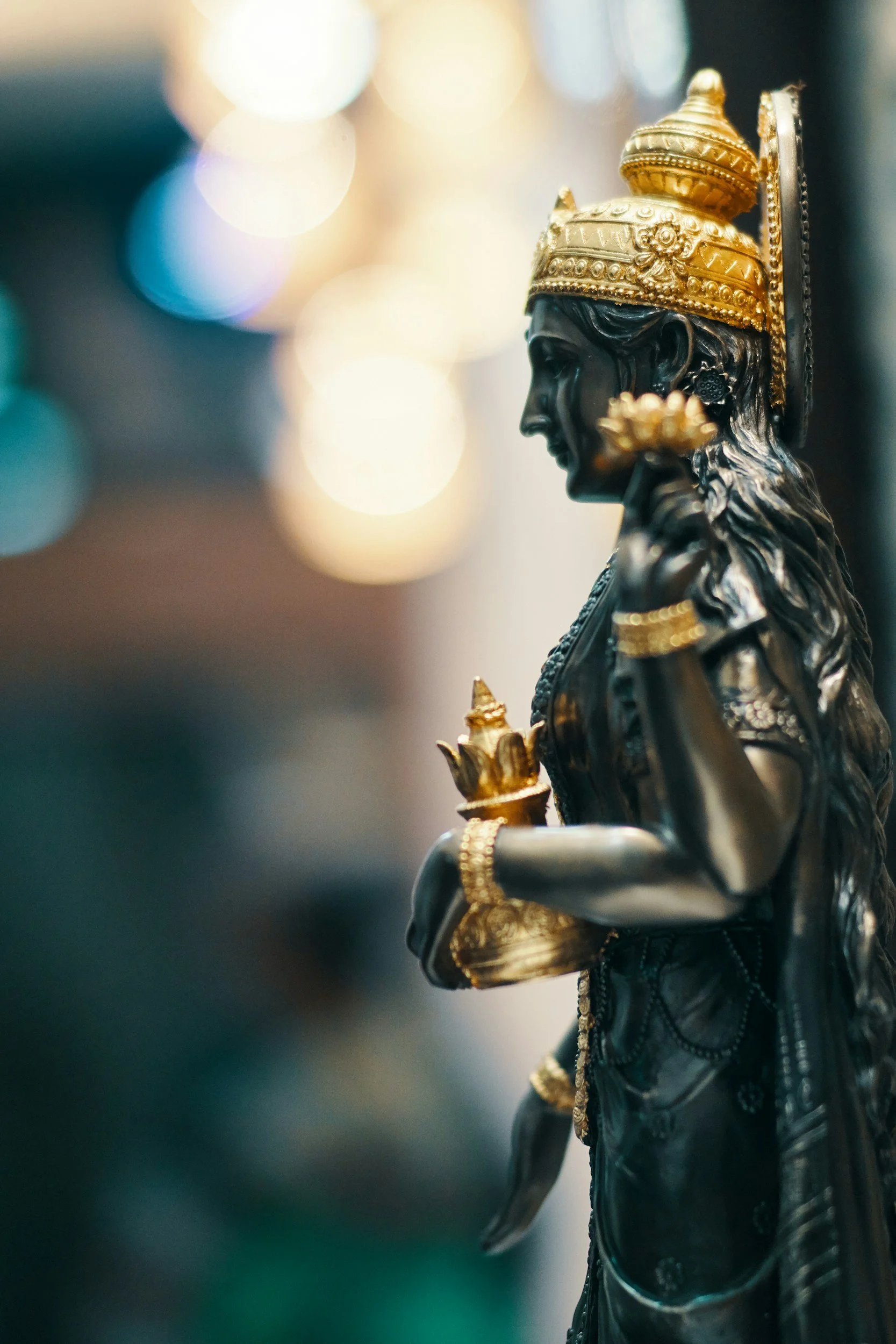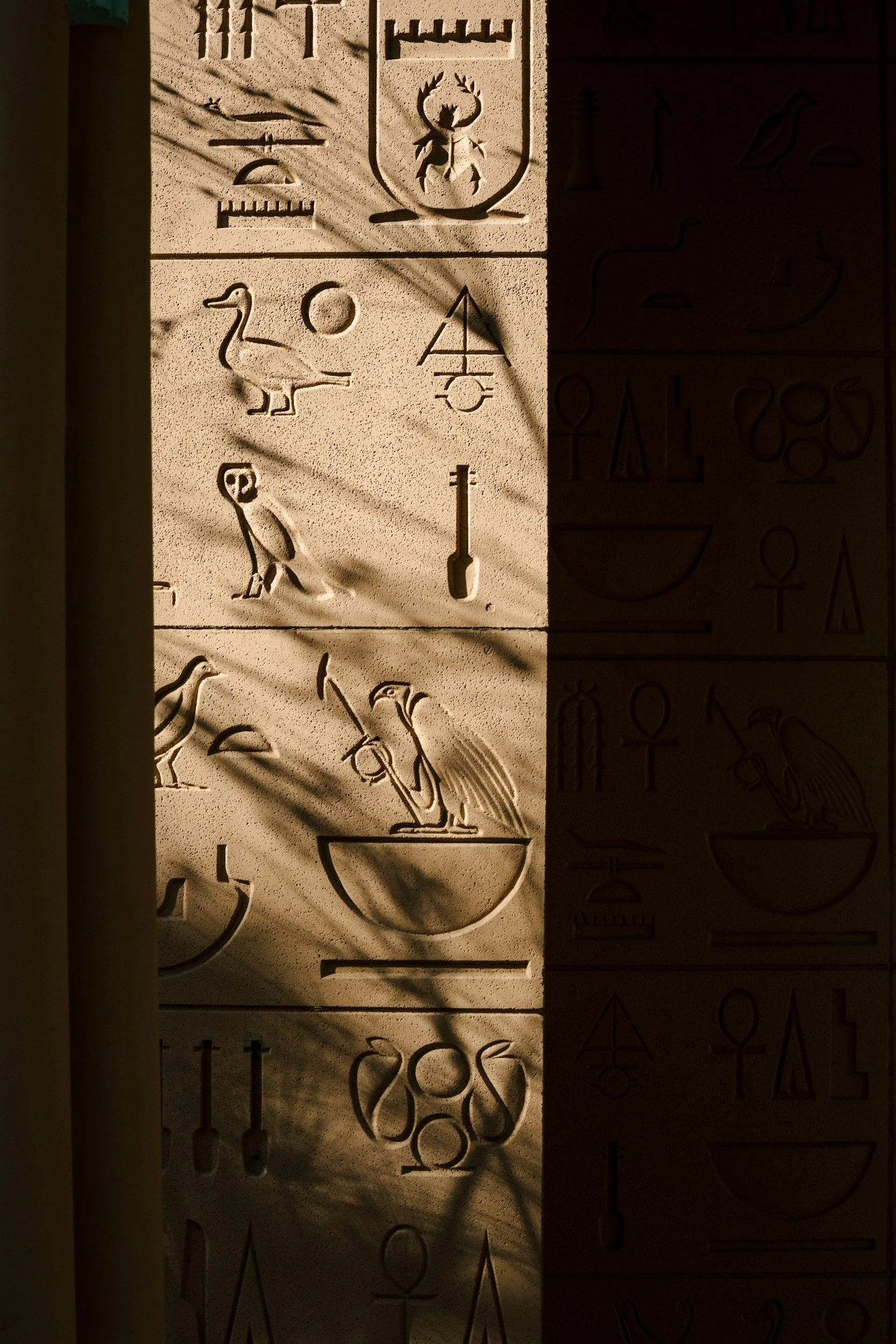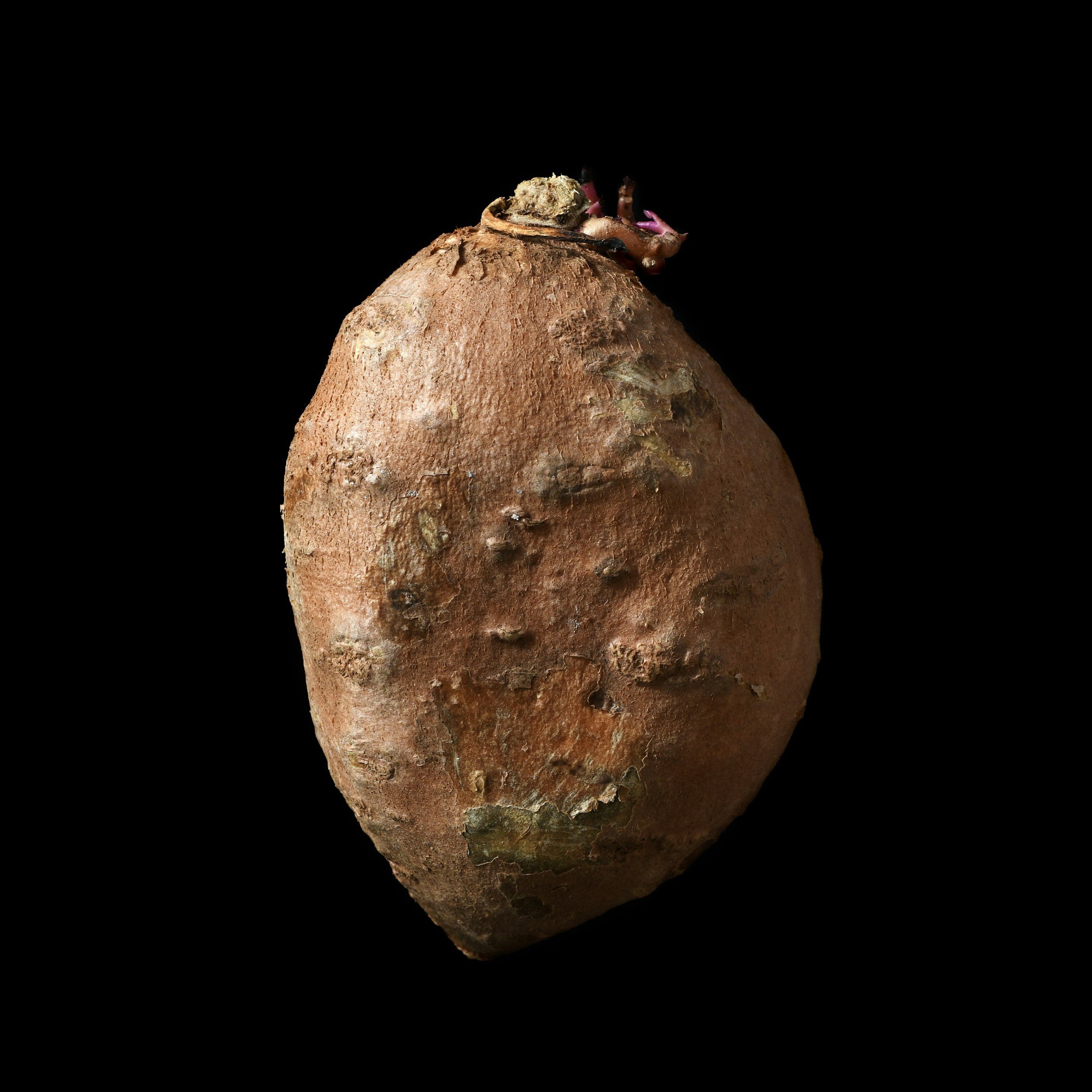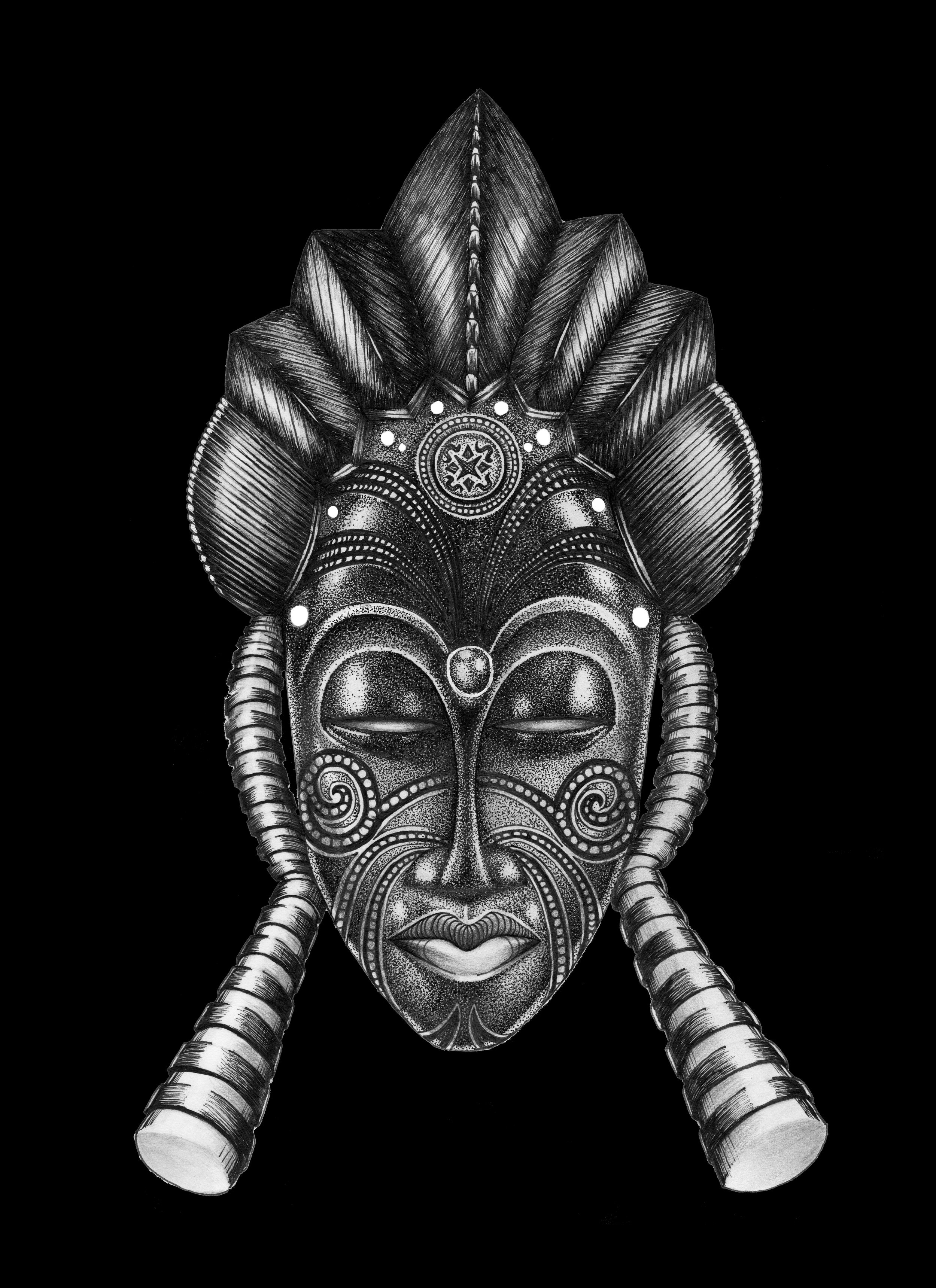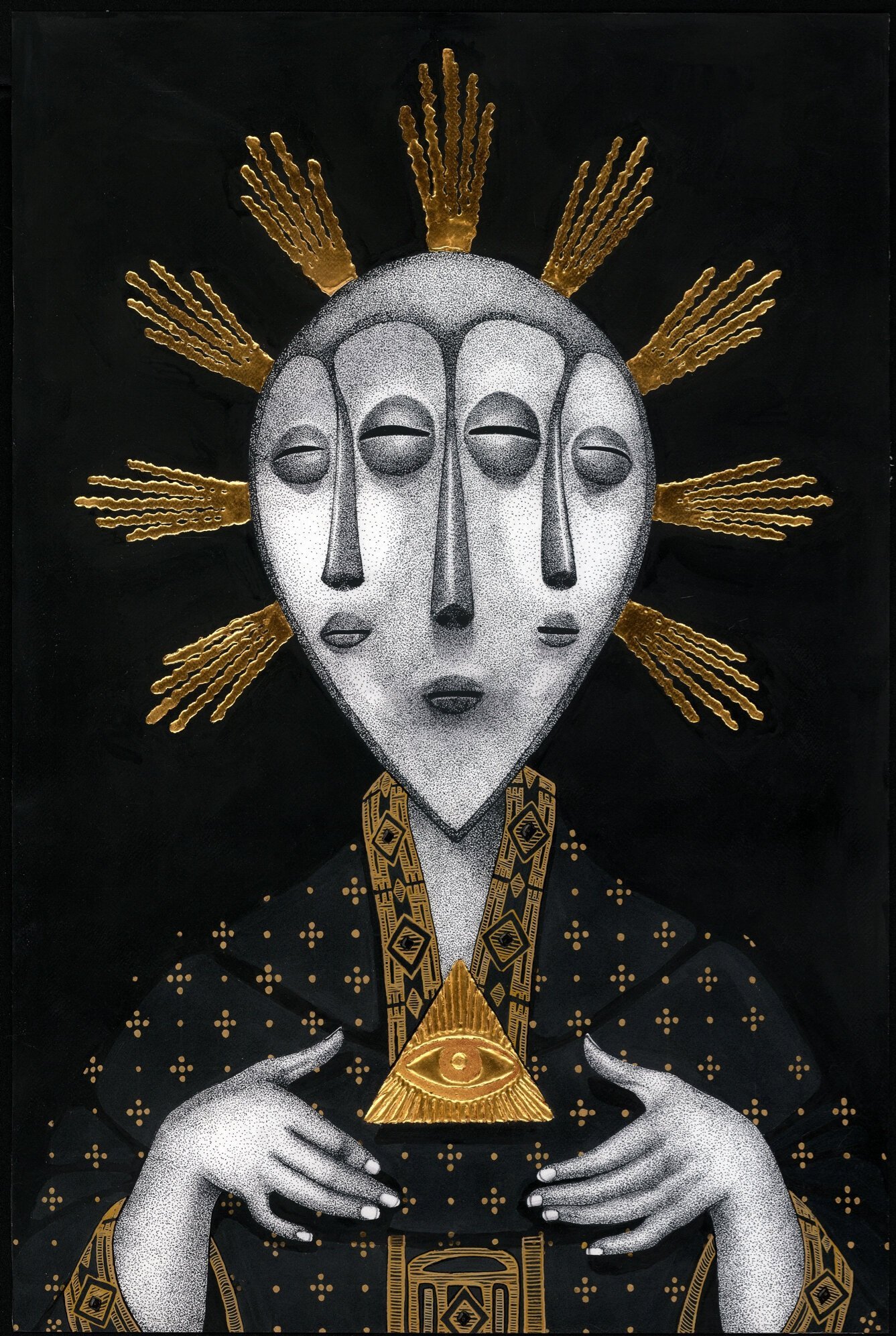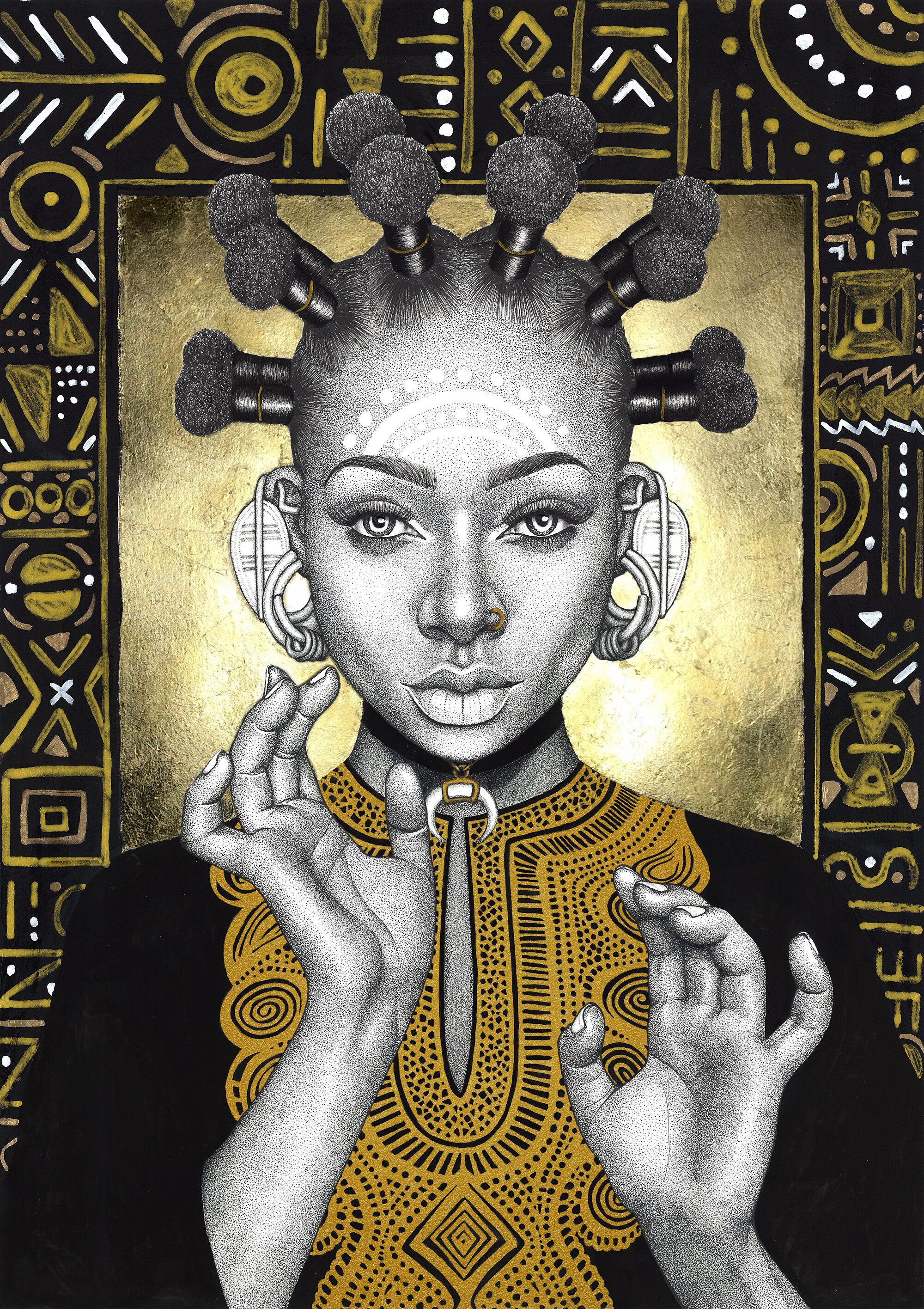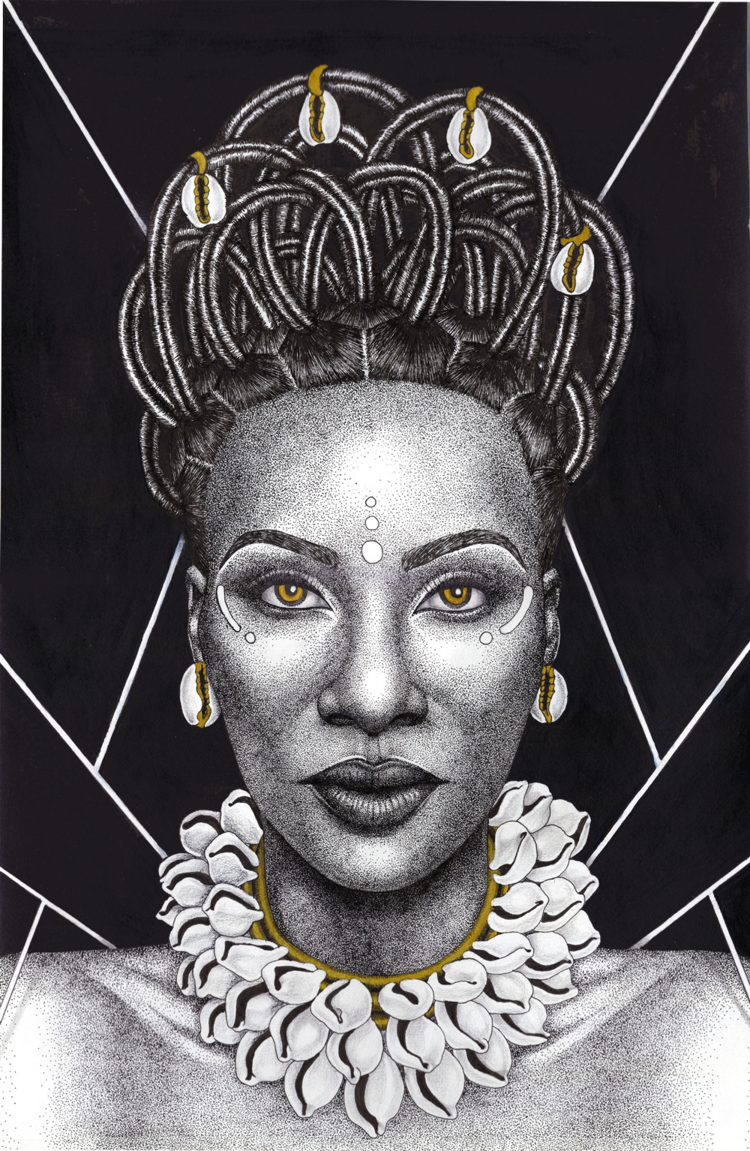Who is Ifejioku (Ahia Njoku) in Igbo Spirituality?
Ifejioku, also known as Ahia Njoku or Aha Njoku, is revered in Igbo Odinani as the deity of yams and agriculture. In Igbo mythology, yams have divine origins. One popular legend from the ancient Nri kingdom tells how a great king, Eze Nri, ended a devastating famine by sacrificing his children. From the burial site of his son and daughter, the first yam and cocoyam plants miraculously grew, saving the people from starvation. The king’s son became the spirit of yam, and his daughter became the spirit of cocoyam.
Another Igbo origin story speaks of a culture hero, Eri, who received yam seeds and farming knowledge from the heavens, emphasizing that yam cultivation was a gift from the gods to Ndi Igbo. These myths establish yams (and by extension Ifejioku), as sacred and foundational to Igbo life.
Over time, Ifejioku/Ahia Njoku came to be venerated as an Alusi (Igbo deity) entrusted by the Supreme God (Chukwu) with the welfare of yam crops. Every Igbo community that grew yams recognized this deity in some form.
Role in Igbo Agricultural Life
In Igbo culture, yam (ji) is known as the “king of crops,” and farming yams is considered the most important agricultural endeavor. A man’s wealth and social status were historically measured by the size of his yam barn. Given the high stakes of yam cultivation, Igbo farmers typically turned to Ifejioku, as the yam deity, for spiritual support.
Ifejioku (Ahia Njoku) is regarded as the guardian and patron of yam farmers. Before planting season and during the cultivation process, farmers would pray and make offerings to this deity, asking for abundant rains, protection from pests, and bumper yields.
Beyond caring for the crops, Ifejioku is also believed to watch over the farmers themselves. Yam farming was so central to Igbo life that disputes over yam fields or harvests were taken very seriously. In fact, Igbo oral tradition holds that Ifejioku’s name might be invoked to settle conflicts over farmland or harvest ownership.
Swearing an oath by the yam deity was a way to ensure honesty in resolving such disputes – after all, no farmer would want to risk offending the spirit that controls his livelihood. This highlights how the practical and spiritual aspects of agriculture intertwined, as was typical for Igbo culture, to farm yams was not only an economic activity but also a sacred duty under the watch of a deity.
Symbolic and Spiritual Significance
Yams carry rich symbolic meaning in Igbo spirituality, and by extension, Ifejioku/Ahia Njoku embodies those meanings. Fertility, prosperity, and life are all wrapped up in the image of the yam. A healthy yam harvest means the community will be well-fed and prosperous, so yams have come to symbolize wealth and abundance.
As the deity of yams, Ifejioku represents the principles of fertility and prosperity of human society as well. The veneration of Ifejioku in Igbo land, as a result, is synonymous with praying for fertile land, fruitful wombs, and thriving families.
In many Igbo communities, the yam is one of the first offerings given in any major ceremony (be it a wedding, ancestral veneration, or festival) because it signifies the blessing of sustenance. People symbolically offer their toil and thankfulness, and in return seek the deity’s favor for continued growth in all things by offering yams.
The spiritual significance of Ifejioku goes beyond agriculture. Because yams were so crucial to survival, the yam deity naturally became linked to justice and moral order in the community. Ahia Njoku’s name was historically invoked in oath-taking and arbitration, especially in agrarian matters. It was believed that Ahia Njoku would punish those who lied or cheated in matters of land boundaries or theft of crops, consequently ensuring fairness.
In this way, the deity served as an unseen custodian of honesty and fair play, reinforcing communal harmony. Furthermore, the yam deity’s close connection with the earth (through the yam) complements the veneration of Ala, the earth goddess.
Ala is the custodian of morality and the earth’s fertility in Igbo cosmology, and one can see Ahia Njoku as working in concert with Ala – with Ala overseeing the earth in general and Ahia Njoku focusing on this most prized crop of the earth. Together, they underline the Igbo belief that spiritual forces are directly involved in the success of everyday life, from ethical behavior to the food on one’s table.
Festivals & Ceremonies Associated with Ifejioku
Ifejioku/Ahia Njoku features prominently in Igbo agricultural festivals, especially those surrounding the yam cycle. The most famous of these is the New Yam Festival, known as “Iri Ji” or “Iwa Ji” (which literally means “eating yam”). This annual festival marks the end of the farming year and the beginning of a new one, coinciding with the yam harvest (usually between August and October).
The New Yam Festival is held in honor of Ahiajoku (another name for Ifejioku), in fact, traditionally no one in the community would taste the new yams of the season until the proper rituals had been performed for the yam deity. The festival is a time of thanksgiving, when the community comes together to joyfully offer the first yams to Chukwu (God), the ancestors, and the yam deity. Only after these offerings are made can everyone partake in eating the new yam. This custom underscores the Igbo belief that the harvest truly belongs first to the divine who made it possible.
Connection to Farmers and Titles of Honor
Given the yam deity’s importance, it has long been common for Igbo people to forge a personal connection with Ifejioku/Ahia Njoku, even through their names and titles. Many Igbo families name their children in honor of the yam spirit. For instance, Njoku (for boys) or Nwanjoku (for girls) became popular names, literally linking the child to the yam deity.
Other names like Mmaji (meaning “beauty of yams”) or Nwaji (“child of yam”) are also traditionally given. Such names originated from the belief that a child dedicated to Ahia Njoku would grow up with the deity’s blessings – typically, they were expected to become prosperous yam farmers or pillars of agricultural abundance.
Successful yam farmers in Igboland traditionally earn great respect, and there are special titles and honors associated with yam cultivation. One of the highest honors is the title of “Eze Ji”, which means “Yam King” or “Chief of Yams.” To earn the Eze Ji title, a man must have produced an impressive surplus of yams and contributed to feeding the community. This title is directly tied to Ahia Njoku: it signifies that the titleholder has proven themselves under the watchful eyes of the yam god or goddess, so to speak.
In some regions, other titles exist as well, such as “Owa-Ji” and “Mma-Ji,” all reflecting aspects of yam wealth and prestige. These honors are a recognition of agricultural excellence and spiritual favor.
It’s worth noting that Njoku (even Ifejioku in some cases) has also become a common surname among Igbos, again thanks to this tradition of naming after the yam deity. Many bear the name with pride, even if they are far removed from farming today.
Modern Relevance of Ifejioku in Igbo Culture Today
With the coming of colonialism and Christianity in the 19th and 20th centuries, many aspects of Igbo traditional worship, including the veneration of deities like Ifejioku, were suppressed or went underground. Over time, fewer people actively venerate Ahia Njoku as a deity in the old way.
However, the cultural imprint of this yam deity remains very strong. The New Yam Festival continues to be one of the most celebrated Igbo traditions. In many Igbo communities today, whether predominantly Christian or those reviving Omenana, the New Yam Festival is still observed, though in a more cultural than religious tone.
To Sum It Up
Ifejioku or Ahia Njoku stands as a compelling example of how spirituality, agriculture, and culture are interwoven in Igbo civilization. Mythologically born from sacrifice and divine generosity, this yam deity became the patron of the Igbo agrarian spirit as a symbol of life, sustenance, and justice.
Today, even as formal worship or veneration of Ifejioku has waned, the cultural reverence for what the deity represents remains strong. Ndi Igbo still hold yams (and by extension, hard work and abundance) in the highest regard.
Recommended Resources:
Ceramic Alter for the Igbo Agriculture Deity Ifejioku. c 1890 | Igbo Archives (Article)
Iwa-ji: New Yam Festival | Juju (Article)
